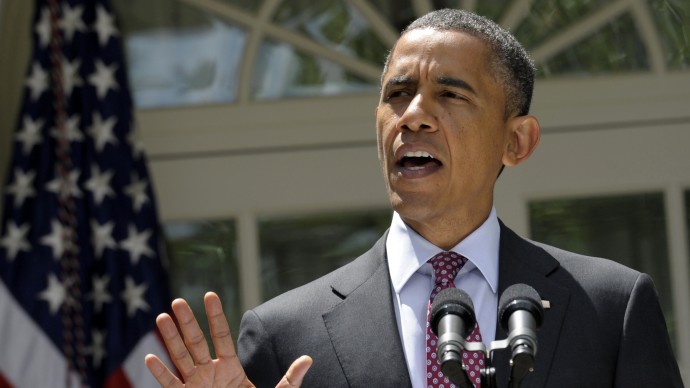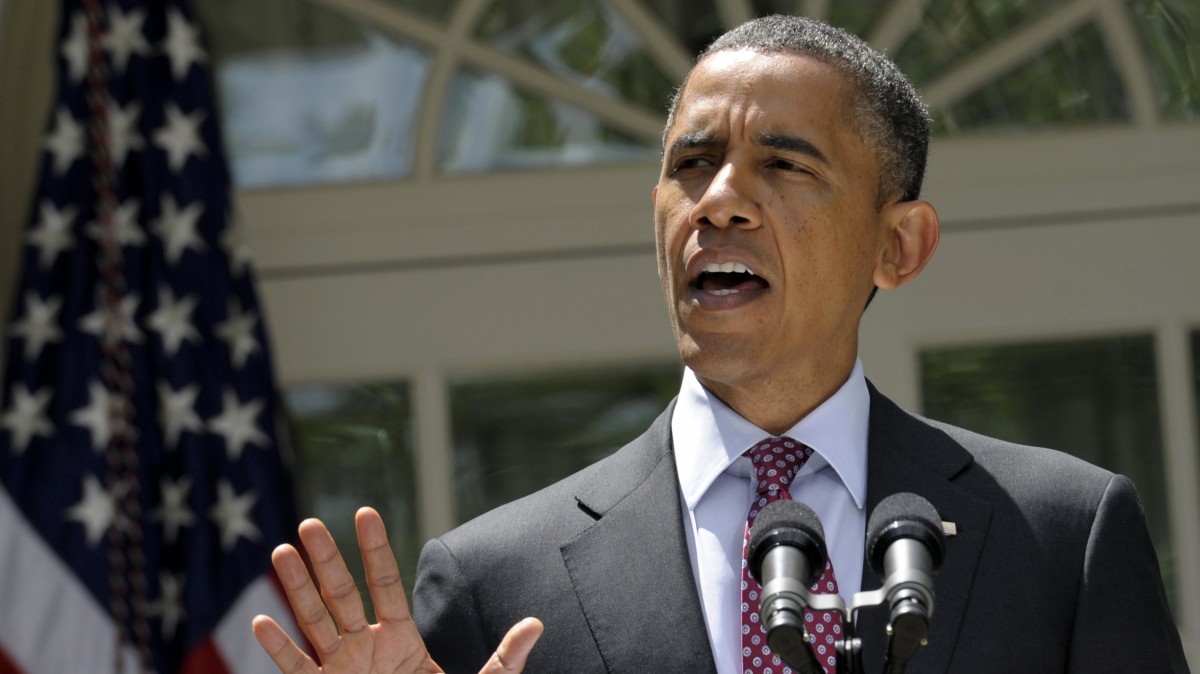
(CONNECTICUT) – President Barack Obama did an end-run around Congress late last week when he announced that his administration would stop deporting children brought to the U.S. illegally, provided they meet certain criteria. Citing the failures of Congress, the president used his executive power to push through what amounted to a miniature version of the DREAM Act, a bill that would provide children of illegal immigrants a way toward citizenship but that has been languishing on Capital Hill since 2010.
It was the right thing to do, as the president said, but it also did a few things politically. It put the brakes on worry inside the Democratic Party that Obama was losing control of his “messaging.” It forced Republican challenger Mitt Romney to talk about what he’s for, not just what he’s against. And it divided conservatives on the issue.
For weeks prior, Obama had suffered the slings and arrows of bad economic news (the unemployment rate rose to 8.2 percent), a Democratic defeat in the race for Wisconsin’s governorship and the media’s tendency to hyperventilate over perceived gaffes (i.e., “The private sector is doing fine”). But on Friday he used the privilege of the presidency to reset and redirect the media’s attention and force Romney to stop hammering him on the economy and stand firm on immigration.
At first, Romney would not respond. A Washington Post reporter covering his campaign in New Hampshire tweeted that Romney dodged five requests for comment. Later that day, he hid behind statements made by U.S. Sen. Marco Rubio, the Cuban-American darling of the Tea Party who has been working on a revised version of the DREAM Act. Rubio said, “It’s a short-term answer to a long-term problem,” noting that an executive order can be reversed any time by this or future presidents. He added that it’s no substitute for legislation. Said Romney, Ditto.
Then on Sunday, in an interview with “Face the Nation,” Romney got even more abstract, giving Bob Schieffer numerous labyrinthine answers to the same question.
“Well, it would be overtaken by events if you will,” he said, “by virtue of my putting in place a long-term solution, with legislation which creates law that relates to these individuals such that they know what their setting is going to be, not just for the term of a President but on a permanent basis.”
Perhaps it’s strange for a presidential candidate to defer on any issue to a junior senator, even one widely seen a potential pick for the vice presidency. It’s stranger that he’s evading the issue after taking hard-right positions on immigration during the hard-fought GOP primary. Romney opposed the DREAM Act and said he preferred policies that would make life so difficult that immigrants would “self-deport.” This won the endorsement of the man behind Arizona’s “papers please” law, which gives local law enforcement officials powers usually reserved for federal immigration agencies. He hoped Romney would use it as a model for the entire country.
But there are reasons for Romney’s evanescence on the issue. One is that he never established himself as a “real” conservative. Recall all those times Newt Gingrich called him the “Massachusetts moderate.” This has put him in a pernicious bind. As he reaches for independents, conservatives stand ready to scream if he appears soft.
If he stood against the policy, he’d risk alienating the Hispanic vote more than he did during the primaries. Without that vote, as Romney himself once said, his campaign is doomed. A May survey shows Obama crushing him among Hispanics by 34 points. A poll released Monday shows 49 percent of Hispanics in five swing states — Arizona, Colorado, Florida, Nevada and Virginia — are now more enthusiastic about Obama than they were before his announcement. That number is almost certainly going to grow. As Josh Marshall of TPM said, Obama’s policy might end if Romney wins in November. That gives Hispanics greater incentive to vote for the president.
Even if he were to represent the conservative view, which view would that be? Conservatives appear divided. Former presidential candidate Rick Santorum told CNN on Sunday that he doesn’t like the “rhetoric and tone I hear from some on our side with respect to immigrants and even the issue of illegal immigration.” Rubio told Fox News Latino his modified DREAM Act and the president’s policy are virtually the same. Richard Land, a leading social conservative evangelical, said:
In order to get amnesty, you’ve got to have done something wrong. These young people are innocent. They haven’t done anything wrong. To me, this is the low-lying fruit of immigration reform. This ought to be something we can all unite around. They have to have been under 16 when they got here, they got to be under 30. He’s not granting citizenship, he’s granting a pathway to legal status. He’s making it so they’re protected from being deported and they can get on with their lives and their education with serving in the military. Investing themselves in our nation and our nation’s future. Who can be against that?
Some conservatives are digging in their heels, of course, but such anti-immigrantism appears increasingly marginal. According to Gallup poll released over the weekend, 66 percent are more positive about immigrants than they have been in five years. In fact, the percentage of those who favor less immigration is at the lowest it’s been since 1965. Conversely, those who favor more immigration is at its highest level.
However, Romney comes down on this, it’s going to be interesting to watch him walk the line. As for the president, he has put himself in the best position politically. For conservatives, he isn’t providing amnesty, the key reason for the death of President George W. Bush’s immigration bill in 2007. For Democrats, he’s offering the blessings of citizens to those who deserve it. And given that his administration has deported more illegal immigrants than his recent predecessors, he won’t look like a bleeding heart liberal to reasonable independents looking for a middle way.


